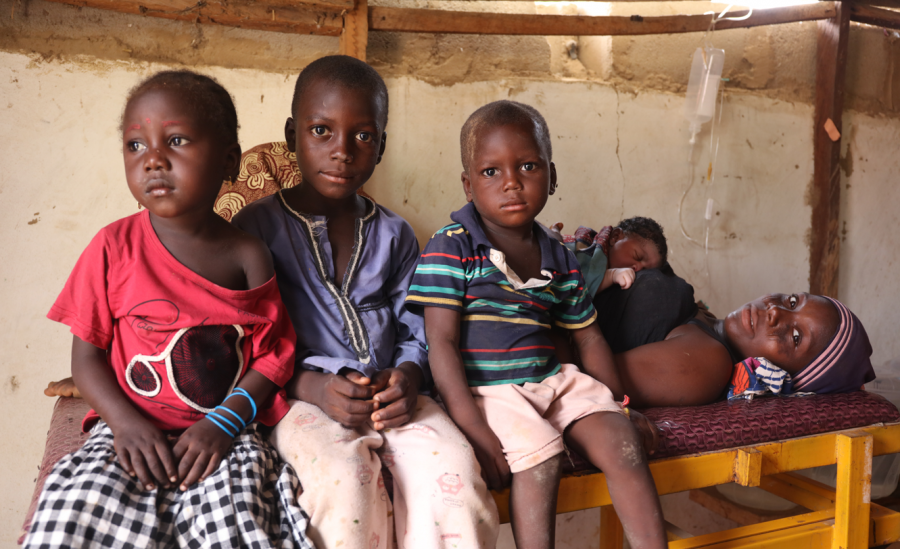Ifeyinwa Yusuf (Lead Writer)
Growing up I dreamt of being a renowned obstetrician or surgeon like Ben Carson. After reading his book, Gifted Hands, I was pumped-up with zeal, so, using my monthly student allowance, I bought as many medical books as I could afford. I imagined what it would be like to live in London and be able to travel across the globe to perform rare surgeries. At age 13, my ambitious thoughts knew no bounds. I knew exactly what I wanted and how to do it. I knew I wanted to be different from my mother.
My mother had 12 children. I don’t believe she planned to have so many children but having no say over what she wanted, with limited access to family planning services, she birthed them as they came. None of my mother’s children were born in a hospital. She had all 12 of us at home, with the help of traditional birth attendants in Amichi, a village in the Southeast of Anambra state, Nigeria. I recall her sharing her near death experience, how she almost bled to death after a 24-hour labour during which she delivered my twin brothers. But my father wanted more male children.
Over the years, I came to understand that my mother’s life was nothing like she had wanted it to be. She was denied the right to achieve her personal ambition and to financial independence as she provided unpaid care for me and my siblings and this affected her health-seeking behaviour significantly. I am in my late 30s, my mother is in her late 70s; it’s been four decades, and I am still being confronted by the factors surrounding gender inequality that challenged my mother’s health, which, if not addressed now, could linger on to affect my daughters and generations to come.
Gender Inequality and Maternal Care
Gender inequality affects the health-seeking behaviour and health care utilisation among women of reproductive age. Primary research, literature reviews, and data have consistently shown a trend in how gender inequality has contributed to poor maternal care and outcomes in low- and middle-income countries. The World Health Organisation stated that high maternal mortality rates not only result from ineffective health systems, but are also a consequence of deep-seated gender inequalities that hinder many women from active participation in decisions that influence aspects of their health and general welfare.
Nigeria, like many other countries across the globe, needs a mind shift. There is a need to develop health policies that improve the continuum of care for Reproductive Maternal Neonatal Child and Adolescent Health (RMNCAH). Strategies must be developed to identify and address gender norms that hinder women’s access to maternal care. Targeted behaviour change communication must be developed to create a mindset shift from a place where women are seen ‘’as property that men should be allowed to control’’ to being seen as people with equal rights to life. A global agenda and indicator for SDG 5 (Gender equality & women empowerment) under targets 5.1 to 5.6 is the inclusion of the proportion of male involvement. This is a crucial indicator in driving any gender transformative approach to end all forms of discrimination, most importantly socio-culturally constructed norms, which have historically been established by men.
One policy that can improve the continuum of care for RMNCAH is a review of the definition of postnatal care from six weeks to two years at a minimum because of the varying needs of women and children. Instances such as the end of maternity leave, transitioning from exclusive breastfeeding to complimentary meals, weaning and immunisation until toddler stage are all reasons why the continuum of maternal care for gender transformative and person-centred care should be made available. Malawi, classified as one of the poorest countries in the world, examined the extent of the impact of gender inequality on maternal health outcomes which can be leveraged upon by Nigeria amongst other LMICs to inform future maternal health interventions. It is important to ensure that interventions do not focus on health systems alone but embody an all-encompassing strategy to address root causes of socially constructed norms that hinder access to maternal care.
It is no secret that there have been enormous disparities in interventions for maternal care. Therefore, I urge individuals to come together to re-evaluate these inequalities and promote a sustainable gender transformative continuum of care for RMNCH. Let’s begin to create a mindset shift and build fair communities for women of childbearing age to reduce maternal mortality and improve maternal health outcomes.
I did not become a doctor, but I know that my life is better than my mother’s was. Still, I continue to envision a better world where my daughters can be the best versions of themselves; where women can freely access and receive quality maternal care and attain the heights they desire while being mothers and everything else they desire to be without re-enacting the generation long struggles of their mothers and grandmothers.
